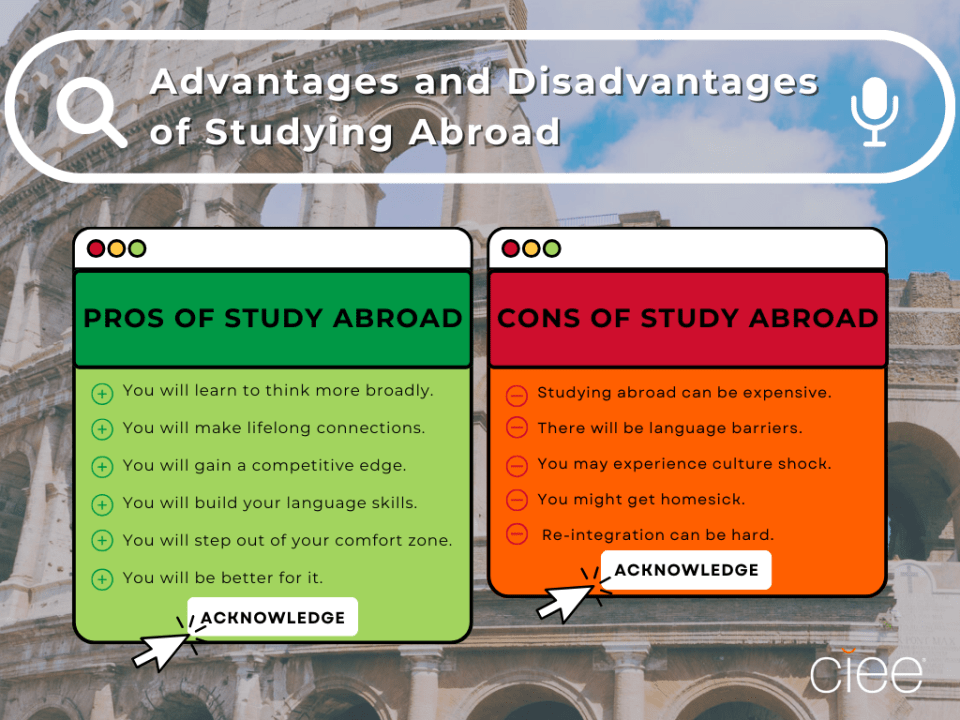Exploring the Benefits of Study Abroad Programs
Study abroad programs have become increasingly popular among students seeking to enhance their educational experiences and personal growth. These programs provide opportunities to immerse oneself in a different culture, gain new perspectives, and develop valuable skills that can be beneficial in both academic and professional contexts. This article delves into the numerous benefits of study abroad programs, highlighting their impact on students’ education, career prospects, and personal development.
Academic Benefits
Enhanced Learning Opportunities
Studying abroad often provides access to unique academic programs, courses, and teaching styles that may not be available at home institutions. Students can:
- Experience Different Educational Systems: Exposure to diverse pedagogical approaches can deepen understanding and foster critical thinking.
- Engage in Field Studies: Many programs incorporate hands-on learning experiences, such as internships or field trips, that enhance academic understanding.
Improved Academic Performance
Research indicates that students who study abroad often experience improved grades and higher graduation rates. Key reasons include:
- Increased Motivation: The excitement of studying in a new environment can inspire greater engagement in academic pursuits.
- Focused Learning: A change of scenery can help students focus better on their studies, leading to enhanced academic outcomes.
Cultural Awareness and Sensitivity
Immersion in Different Cultures
Study abroad programs provide students with the opportunity to immerse themselves in a different culture, leading to a greater understanding of global perspectives. Benefits include:
- Broadened Worldview: Exposure to new customs, traditions, and lifestyles can challenge preconceived notions and foster open-mindedness.
- Cultural Sensitivity: Living and interacting with diverse communities enhances empathy and cultural awareness, which are essential skills in today’s interconnected world.
Building Cross-Cultural Competence
Students develop the ability to navigate and adapt to diverse environments, which is increasingly valuable in both personal and professional contexts.
Personal Growth
Increased Independence and Confidence
Living in a foreign country encourages self-reliance and problem-solving skills. Students often:
- Learn to Navigate Challenges: From managing finances to overcoming language barriers, students gain practical life skills that foster independence.
- Boost Self-Confidence: Successfully adapting to a new environment can enhance self-esteem and resilience.
Development of Lifelong Friendships
Study abroad programs often lead to lasting friendships with fellow students from around the world, fostering a sense of community and support.
Professional Development
Enhanced Career Prospects
Employers often view study abroad experiences favorably, recognizing the skills and qualities they impart. Benefits include:
- Global Competence: Understanding international markets and cultural nuances can set candidates apart in a competitive job market.
- Demonstrated Adaptability: Employers value the ability to adapt to new environments, a key trait developed through studying abroad.
Skill Development
Students can acquire a range of transferable skills, including:
- Communication Skills: Navigating language barriers and cultural differences improves verbal and non-verbal communication abilities.
- Critical Thinking: Exposure to different perspectives encourages innovative problem-solving and critical analysis.
Networking Opportunities
Building a Global Network
Studying abroad allows students to connect with peers, professors, and professionals from various backgrounds, creating a diverse network. Benefits include:
- Access to International Resources: Networking can lead to internship and job opportunities, as well as collaborations on future projects.
- Cultural Exchange: Building relationships with people from different cultures enhances mutual understanding and collaboration.
Language Acquisition
Immersive Language Learning
Studying in a country where a different language is spoken provides a unique opportunity for immersive language acquisition. Benefits include:
- Practical Language Skills: Daily interactions in the target language help students become more fluent and confident speakers.
- Cultural Context: Understanding the cultural nuances behind a language deepens appreciation and mastery.
Conclusion
Study abroad programs offer a multitude of benefits that extend far beyond academic learning. From enhanced cultural awareness and personal growth to improved career prospects and language skills, the advantages of studying abroad are substantial. As globalization continues to shape the world, the experiences gained through these programs equip students with the tools necessary to thrive in diverse environments. For those considering studying abroad, the journey promises to be a transformative experience that can profoundly impact their future.






